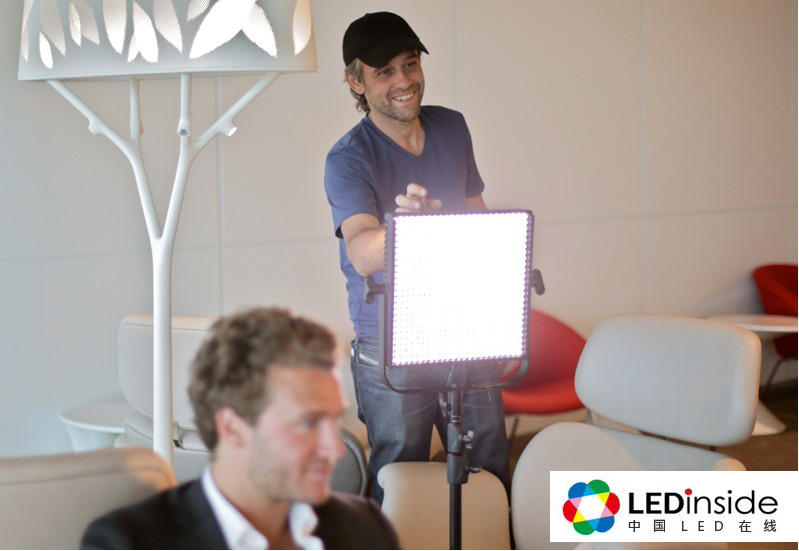High quality LEDs helping broadcasters to save energy, cut costs and reduce CO2 emissions. The latest advanced, low-energy lighting technologies enhance picture quality and increase creative options, improving the efficiency of studio operations.
Traditional tungsten fixtures have dominated the broadcast lighting world for more than 50 years and many lighting directors and studio managers remain convinced that the historical investment in these lights has already been recouped. However, one of the real shocks to studio owners and operators is just how much this older lighting actually costs them on an annual basis. In reality, the older lights pose a bigger financial burden to both the broadcaster and the environment in the form of hidden, on-going expenses and higher levels of energy use.

The biggest culprit of energy consumption in every studio production is by far the traditional lighting fixtures. These lights draw and consume a tremendous amount of electrical power, most of which is wasted by turning directly into heat that can only be removed by using air conditioning to cool the surrounding space. This is obviously both energy-sapping and expensive, and significantly increases the studio’s operating costs. Coupled with the expense of regular maintenance and replacement bulbs, the older lights are a much heavier financial millstone than LED lighting fixtures.
One of the obvious advantages of LED as a technology platform for lighting is its meagre power consumption, which can be as much as 80-90% less than traditional tungsten fixtures. Litepanels LED lights are also cool running so the requirement for air conditioning in a studio environment is dramatically reduced, helping to provide further energy and cost savings.
The maintenance requirements are almost non-existent as the lamp life of the higher quality LEDs last for tens of thousands of hours compared to a couple hundred hours for incandescent bulbs. Also, LEDs contain none of the heavy metals found in fluorescent and HMI lighting products, making them truly environmentally friendly. This long life comes from proper management of thermal dynamics, as well as a constant current control, in many cases giving the equivalent of more than ten years of normal studio use.
However well-documented the financial and energy savings are, it is still debated in the broadcast industry whether the performance pros of the traditional lights outweigh the cost cons. Although the long life of LEDs is attractive, the primary concern is focused on the quality and consistency of light. When lighting directors are deciding which products to use, they are driven by the need to create attractive images so LED fixtures need to produce a light that is both practical yet flattering. Unfortunately many of them fall short.












